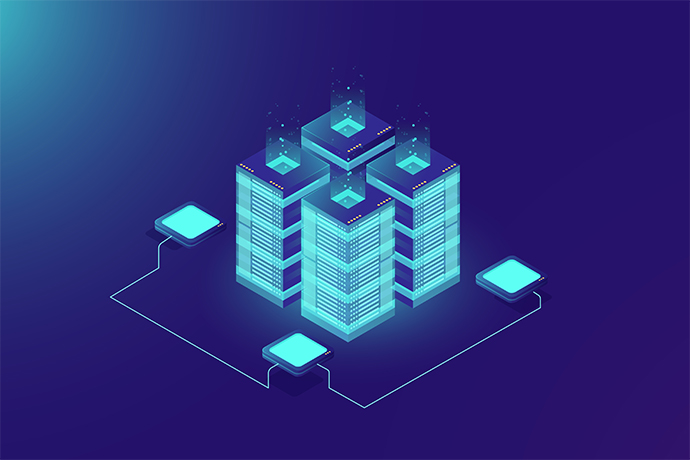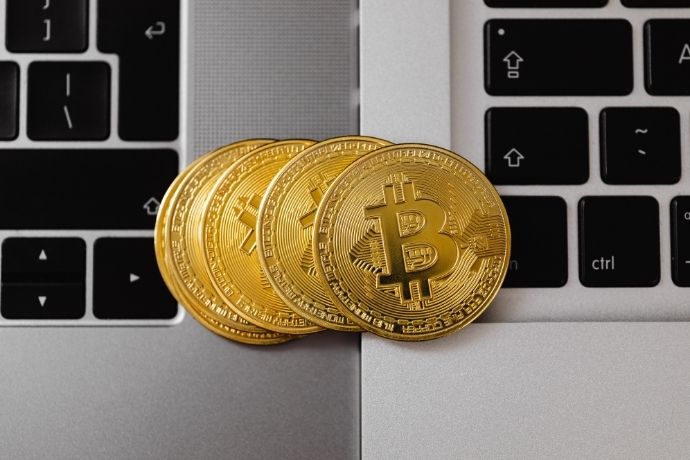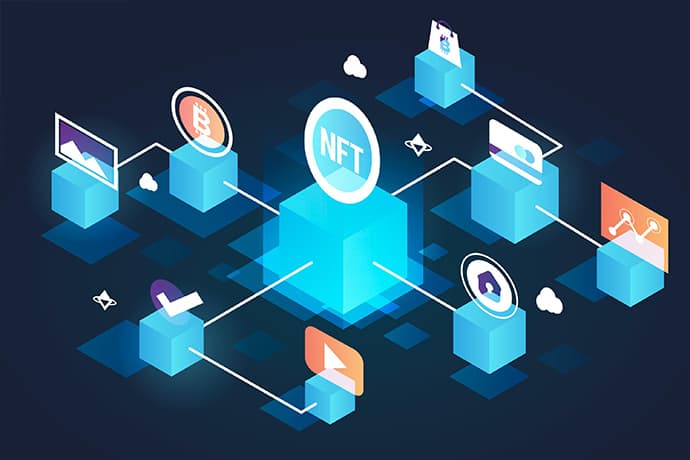 SPEAKERS
SPEAKERS
 TOPICS
TOPICS
Blockchain is taking the world by storm. Learn more about this technology and its benefits for businesses in this guide.

Over the past years, the term “blockchain” has become a ubiquitous buzzword - and rightfully so. Although still in their infancy, they have shown the potential to disrupt most industries on a global scale.
What are blockchain technologies and how can adopting this innovation benefit your business?
In this guide, you’ll find some key blockchain technology facts to help you better understand what the technology is and why it has been defined as “the fifth disrupting computing paradigm” after mainframes, Personal Computers, the Internet, and social networks.
A quick glance at the history shows that the concept of a decentralised and distributed database of transactions was originally outlined in the early 1980s. However, it was only with a 1991 white paper by Stuart Haber and W. Scott Stornetta that the idea of how to time-stamp a digital document became reality.
The popularity of this concept skyrocketed in 2008 when anonymous creator Satoshi Nakamoto referenced the work of Haber and Stornetta in its original Bitcoin white paper and used blockchain infrastructure to develop cryptocurrencies.

Since the early 2000s, blockchain networks have developed significantly to not only support today’s volume of crypto transactions but also to be used across multiple industries.
There is no doubt that blockchain technology is taking the world by storm. The video below can help you take a step towards understanding what blocks are and how they work!
<iframe width="560" height="315" src="https://www.youtube.com/embed/SSo_EIwHSd4" title="YouTube video player" frameborder="0" allow="accelerometer; autoplay; clipboard-write; encrypted-media; gyroscope; picture-in-picture" allowfullscreen></iframe>
Defined as a distributed and decentralised database, which securely records transactions on blockchain networks. This database (also known as a ledger) is shared among the different nodes of a computer network and stores information in a digital format. Because it is decentralised, the government of the blockchain relies on its members rather than on a central authority like central banks.
One of the greatest advantages is that the transactions recorded are impossible to tamper with. From NFTs to smart contracts, digitising this technology is enabling safer trade of intellectual and physical property.
One of the key technology facts to remember is that many cryptocurrencies, including highly popular digital coins such as Bitcoin and Ethereum are blockchain based iterations. United states alone accounts for 40% of all blockchain start-ups globally.

Blockchain systems are not controlled by one entry and ensure that all transactions are recorded securely and immutably, this technology has made it possible to support the creation of decentralised digital currencies and peer-to-peer transactions (without the need for ”middle men” like banks).
In the video below, you’ll find a guide to how cryptocurrency works and how digital currencies use blockchain.
When looking at blockchain facts and figures, it is easy to see that, while they are supporting faster and cheaper bitcoin transactions, they are also responsible for releasing a growing amount of harmful emissions. For example, major cryptocurrencies such as Ethereum used to consume a whopping 93.98 TWh per year, which is the equivalent of the energy consumed annually by a small country.
However, major digital currencies have also been among the first ones to look for ways to reduce their environmental impact. And, in 2022, thanks to the Merge upgrade, Ethereum has been able to reduce its emissions by a staggering 99.9%.
The Merge upgrade involves moving from a resource-intensive Proof-of-Work system to a much leaner and lighter Proof-of-Stake system, which reduces the need for energy-hungry specialised equipment.
Among the top facts about blockchain is its impact that on the global market. According to studies, this technology is playing a key role in starting the fifth industrial revolution and creating a more harmonious connection between humans and technology.
Blockchain is also supporting secure automation in industries and fields that have been put under unprecedented pressure during the past years.
For example, within the supply chain, blockchain solutions can be paired with smart packaging and IoT to immutably record the journey of each item from the manufacturer to the consumer. In turn, this can reduce the likelihood of falsification, counterfeiting, refilling, and diversion, thus safeguarding manufacturers and consumers alike.
Some key industries that have already been transformed by blockchain include:
For example, in the entertainment industry, this new ledger technology have supported the development of Non-Fungible Tokens and their transactions, thus securing the rights of digital creators and boosting the digital art scene.
Alternatively, during the elections, it can help governments record votes anonymously and securely. Or, in the world of real estate transactions, blockchain can support the trading of properties without the need for lengthy legal processes. All because data stored on the blockchain cannot be tampered with.
Financial sector is benefiting from integrating this technology into their product offering. Crypto credit cards are available to bitcoin wallet holders to provide a swift and secure way to make valid transactions.

Initially used to support the growth of cryptocurrencies. However, over the past years, a growing number of industries have adopted this new technology.
Given the advancements, it is unsurprising that this technology is growing at an unprecedented rate. Global spending on blockchain is only going to increase. As new use cases are found each day, more companies and business leaders have decided to invest in blockchain. In turn, this has led to estimations showing that the global blockchain technology market is expected to grow from a total value of $5.85 billion in 2021 to $1,235.71 billion by 2030, growing at a sustained annual rate of 82.2%.
Blockchain infrastructures are equally important for businesses and consumers, who are using digital currencies like never before. In the past years, the number of crypto and blockchain wallet owners has grown significantly, and today, it stands at over 81 million.
If you wish to understand how to get started with a blockchain wallet, you might find this video helpful.
According to studies conducted by Deloitte in 2018, blockchain is considered to be a priority investment for most businesses, and nearly 40% of the companies surveyed were looking to invest over $5 in this technology during the following year.
Another study released by Deloitte in 2021 shows that 73% of enterprises believe blockchain adoption to be critical to maintaining their competitive advantage, while 76% of respondents think that cryptocurrencies will become dominant within the next 10 years.
There is little doubt that blockchain is reshaping the future of every business. So, if you wish for your enterprise to remain competitive, you might look into the benefits of adopting blockchain systems for your supply chain or cryptocurrencies for your international transactions. A good place to start learning more about blockchain would be to engage a specialist.